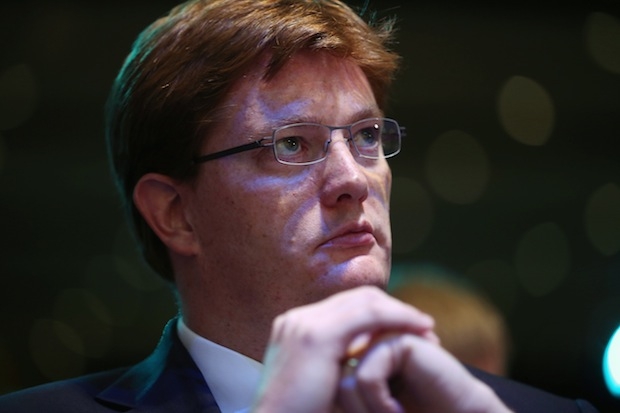Danny Alexander managed to please Ed Balls at Treasury Questions today by revealing that he wasn’t opposed to the Shadow Chancellor’s call for the Office for Budget Responsibility to audit the spending pledges made in an opposition party’s manifesto. He told the Commons:
‘I think this is an idea well worth further consideration, Mr Speaker. What I’d be worried about in taking it forward is the pressure it would place on the Office for Budget Responsibility, which is a new organisation that’s only recently taken on responsibility for forecasting the public finances. I’d worry that in the first election when they have those responsibilities this function might be difficult for them to carry through but I do think it’s an idea that is well worthy of debate because of course the British people need to know that what every party says is what it means. I’d suggest respectfully to the Shadow Chancellor, Mr Speaker, that spending a bank bonus tax ten times over doesn’t meet that test.’
George Osborne was away today, but he has made his opposition to this idea very clear. But that last sentence in Alexander’s response is designed to highlight that he’s not differentiating away from the Tories and towards Labour: he wanted to be clear that he still views Labour as profligate.
But this raises a very interesting point to mull about a possible Lib-Lab coalition after 2015. Some Lib Dem members might feel as though they’ve come home if their party does go into government with Labour. But the practice of differentiation would arguably be more difficult for the Lib Dems if they were governing with Labour. If you look at the big dividing lines that Nick Clegg has set up with both parties, which are that ‘Labour would wreck the recovery’ and ‘the Conservatives would give us the wrong kind of recovery’, you can see that forging a separate identity from the latter party is rather more pleasant than the first. If you’re the party that repeatedly pushes for fairness in government and blocks mean cuts, as the Lib Dems want to say they’ve been doing with the Conservatives, then you’re the nice party. But if you’re the party that repeatedly has to block Labour spending too much, then you’re the tight-fisted party that stops the government spending more money on nice appealing things like new school buildings and giveaways. The Lib Dems might become useful cover for a Labour government that is trying to make cuts that are opposed by its own backbenchers. But it would be an interesting shift from being the nice party to the tough, frugal one.







Comments